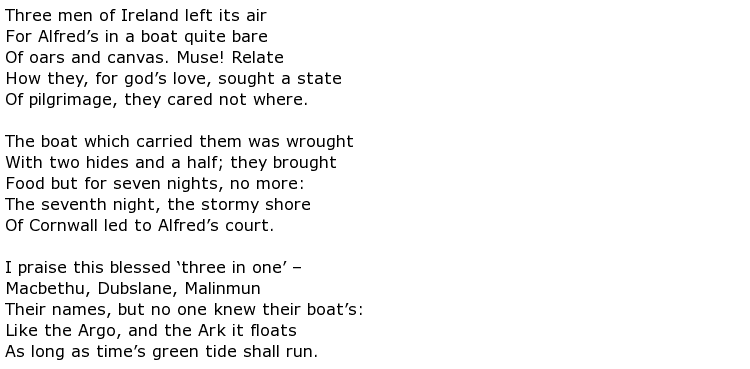 Alexander Craig of Rosecraig was better known by his contemporaries as Scoto-Britane, which was his pen name. He was born in 1567, in Perthshire, in the north of Scotland, the year same year Mary Queen of Scots was executed after her long imprisonment in England by her cousin Elizabeth I. Born into an aristocratic family in post reformation Scotland, Alexander Craig lived through an age of civil war and religious conflict, yet his works still manage to capture the beauty of his time through his poetry. He is best remembered for his now for love sonnets.
Alexander Craig of Rosecraig was better known by his contemporaries as Scoto-Britane, which was his pen name. He was born in 1567, in Perthshire, in the north of Scotland, the year same year Mary Queen of Scots was executed after her long imprisonment in England by her cousin Elizabeth I. Born into an aristocratic family in post reformation Scotland, Alexander Craig lived through an age of civil war and religious conflict, yet his works still manage to capture the beauty of his time through his poetry. He is best remembered for his now for love sonnets.
One of his pieces, Amorose Songes, he dedicated to Ann of Denmark, wife of James VI of Scotland and I of England. Amorose Songes, was a collection of 108 poems the same as Phillip Sidney’s Astrophil and Stella. This was almost certainly done on purpose, perhaps to pay homage to this poetical masterpiece, which explored similar themes as his own writings, such as love and desire. There is no doubting that Craig was influenced by Sidney’s work and may have sought to emulate it himself. His works were commonly heard in the Scottish court of James VI and other women who are mentioned by name in the titles of his poems such as Pandora (Pandora refuseth his letter) and Lithocardia (To Lithocardia.)
Craig’s’ poems speak of desire and yearning. He explores both the beauty of love along with the pain and suffering when it is unrequited. In To Pandora he describes his love for her in the hope that she repays it. Much of his work contains classical imagery relating to Greek mythology such as the siege of Troy. Again this is similar to Sidney’s work whose protagonists are named after the Greek words for star. Though this was not uncommon for the time, giving that Homers epic poems were widely read. In fact this classical imagery is still a common feature in modern poetry.
Apart from his poems little information remains about the man himself. He is said to have read at St Andrews alongside Robert Anyton and their work shows a mutual admiration and encouragement between the two young poets. Looking carefully, you can clearly see their shared interest in genre and style.
Like Robert Burns after him, Alexander Craig chose to write his poems in Scots dialect rather than the more stylish French, which was spoken at court or the Latin used by academics. Perhaps this was his way of keeping in touch with the common man, though most were illiterate, they could still listen and recite his poems. Or perhaps it was due the increasing tensions between Scotland and France after the reformation. Either way his work represents an important step forward for English literature, which was just beginning to blossom with writers like Sir Francis Bacon and John Bale. Eventually it would lead to great writers and poets like William Shakespeare and Robert ‘Rabbie’ Burns.
He also wrote a poem in memory of the Irish Poet Y M Yeats entitled The First Voyagers, which describes three men leaving their homes in Ireland to go, they cared not where. A portion of this poem is replicated here:

Alexander Craig is reported to have passed away in the latter part of 1627.

